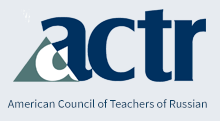Russian Language Journal
Article Title
Keywords
cultural adaptation, multicultural context, social engagement, intellectual engagement, explicit/implicit analysis
Abstract
The article The Kazakhstan Model of the Russian Flagship Academic Program examines the current model of the Russian Flagship Capstone Program as implemented in Kazakhstan. This study analyzes the application of core principles of the Flagship overseas training model as well as necessary adaptations required by the distinctively multi-cultural environment of the host country. Among core adaptations, two new courses were introduced: Kazakh language and intercultural communications. In order to foster greater inclusion of capstone participants within the host culture, students are encouraged to study and reflect on both implicit and explicit meanings of the linguistic and cultural texts they encounter. This form of learning is predicated on activation of learners’ critical thinking skills and cognitive flexibility as well as openness to adaptation of their existing conceptual systems to new social and cultural conditions. Given the age of the participants (young adults), explicit conceptual target language discussions of cultural and behavioral differences and practices are essential. Development of student analytic and adaptational abilities was further enhanced by the use of learning tasks directed at recognizing embedded meanings in a range of context and narratives. Students become increasingly skilled at observing the effects of their linguistic and cultural efforts at communicating meaning and in participating more fully in the host culture.
Recommended Citation
ЕКШЕМБЕЕВА, ЛЮДМИЛА
(2020)
"Казахстанская модель академической программы «Флагман»,"
Russian Language Journal: Vol. 70:
Iss.
1, Article 4.
Available at:
https://scholarsarchive.byu.edu/rlj/vol70/iss1/4

